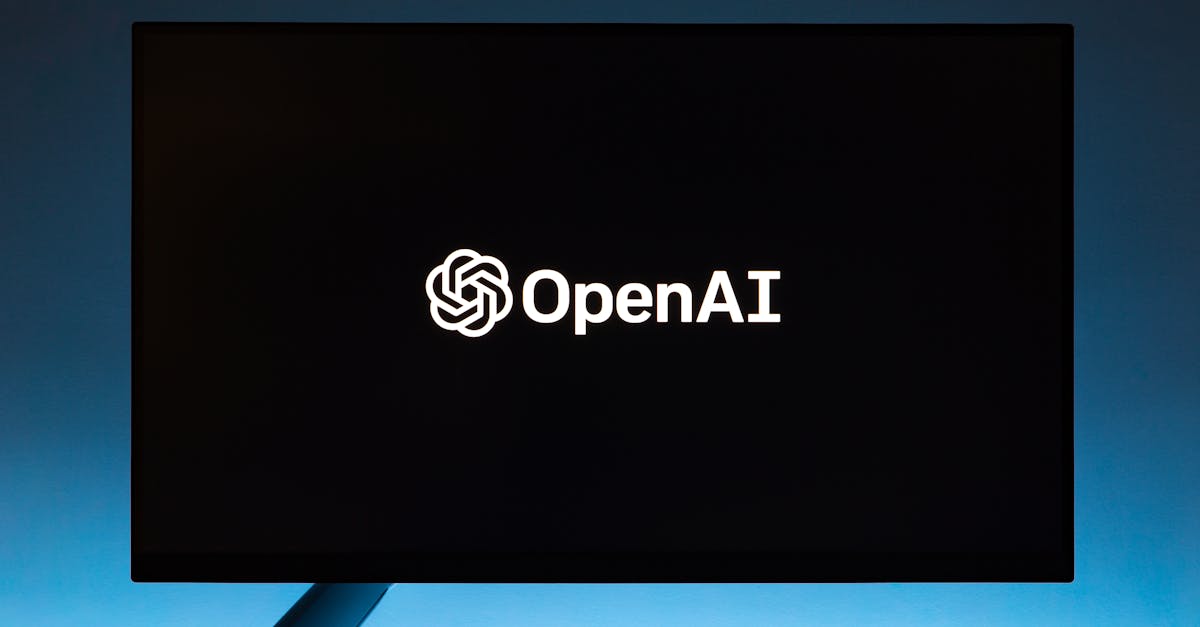
Understanding GPT Technology: The AI Revolution in SEO
1.1. The Evolution of AI and NLP in Digital Marketing
Artificial intelligence (AI) and natural language processing (NLP) have been transforming the digital marketing landscape for years. Early AI-driven marketing tools focused on automating repetitive tasks, improving data analysis, and providing personalized recommendations. With advances in machine learning and deep learning, AI has evolved to understand, interpret, and generate human-like language, leading to the development of powerful NLP algorithms like GPT.

1.2. GPT Explained: The Power of Generative Pre-trained Transformers
Generative Pre-trained Transformers (GPT) is a cutting-edge NLP model developed by OpenAI. It’s designed to understand context and generate human-like text based on a given input. By training on vast amounts of data from the internet, GPT can generate coherent, contextually relevant, and grammatically correct content that’s useful for various applications, including SEO.
1.3. Advantages of Using GPT for SEO Strategies
GPT offers numerous advantages for SEO professionals, such as:
- Time-saving content generation
- Improved keyword research and analysis
- Enhanced on-page optimization
- Tailored outreach campaigns
- Comprehensive technical SEO audits
Request a free SEO audit of your website
Top 50 Semantic Entities for GPT SEO
2.1. Identifying and Ranking Semantic Entities in the GPT SEO Domain
Semantic entities are words or phrases that carry significant meaning within a particular context. To identify the top 50 semantic entities related to GPT SEO, thorough research and analysis of search data, trends, and industry-specific resources are required. These entities should be woven into the content and strategies to improve search visibility and relevance.
2.2. Why Semantic Entities Matter for GPT SEO Success
Semantic entities play a crucial role in GPT SEO as they help search engines understand the context and intent behind a query. By incorporating these entities into your SEO strategy, you can create content that is more likely to rank higher in search results and resonate with your target audience.
Content Creation and Optimization with GPT
3.1. Harnessing GPT for Keyword Research and Selection
GPT can analyze large datasets and generate keyword suggestions based on user intent, search volume, and competition. By using GPT for keyword research, you can uncover long-tail keywords and semantic variations that may be overlooked by traditional keyword tools.
3.2. Crafting Engaging and Well-Structured Content with GPT Assistance
GPT can help create high-quality content by generating ideas, headlines, and even entire articles based on your input. By using GPT as a content assistant, you can create engaging and informative content that aligns with your target audience’s interests and search intent.
3.3. Optimizing Meta Titles, Descriptions, and Headers with GPT
GPT can generate optimized meta titles, descriptions, and headers that incorporate your target keywords and semantic entities. By using GPT-generated meta data, you can improve click-through rates and on-page SEO performance.
GPT-Powered Link Building and Outreach
4.1. Identifying High-Quality Link Opportunities with GPT
GPT can assist in identifying high-quality link opportunities by analyzing your niche, competitors, and industry influencers. By leveraging GPT insights, you can develop a strategic link-building plan that targets authoritative websites and strengthens your backlink profile.
4.2. GPT-Generated Email Pitches and Outreach Templates
GPT can create personalized email pitches and outreach templates that resonate with your target audience. By using GPT-generated outreach materials, you can improve response rates and forge meaningful relationships with industry influencers, leading to more successful link-building campaigns.
4.3. Monitoring and Measuring Link Building Success
GPT can help you monitor and measure the success of your link-building efforts by generating reports that track key performance indicators (KPIs), such as the number of acquired backlinks, domain authority, and referral traffic. By leveraging GPT-generated insights, you can adjust your strategy accordingly and maximize your link-building ROI.
Technical SEO Enhancements Through GPT
5.1. GPT Insights for Website Architecture and UX
GPT can provide insights into optimizing website architecture and user experience (UX) by analyzing visitor behavior, user flow, and other data points. By implementing GPT-driven recommendations, you can improve site navigation, reduce bounce rates, and enhance overall user engagement.
5.2. Schema Markup and Structured Data with GPT Guidance
GPT can assist in implementing schema markup and structured data on your website. By incorporating GPT-generated structured data, you can provide search engines with additional context about your content, leading to enhanced search visibility and rich snippet opportunities.
5.3. GPT-Based SEO Audits and Recommendations
GPT can perform comprehensive SEO audits, identifying areas for improvement and providing actionable recommendations. By leveraging GPT’s auditing capabilities, you can address technical SEO issues, optimize on-page elements, and enhance your overall search performance.
The Future of GPT and SEO: Emerging Trends and Best Practices
6.1. The Role of GPT in Voice Search and Conversational AI
As voice search and conversational AI continue to gain traction, GPT’s advanced NLP capabilities will play an increasingly important role in optimizing content for these emerging technologies. By embracing GPT’s potential, SEO professionals can adapt their strategies to align with the growing demand for voice-activated search and AI-driven interactions.
6.2. GPT Ethics, Legal Considerations, and Responsible Use
As GPT becomes more prevalent in SEO and digital marketing, it’s essential to address ethical concerns, such as content authenticity, data privacy, and responsible AI usage. SEO professionals should adhere to best practices and industry guidelines to ensure GPT technology is used responsibly and ethically.
6.3. Staying Ahead of the Curve: Adapting to GPT SEO Developments
GPT and AI-driven SEO will continue to evolve rapidly, and staying ahead of the curve will be crucial for long-term success. By continuously learning about new developments in GPT technology, SEO professionals can adapt their strategies, enhance their skills, and maintain a competitive edge in the ever-changing digital landscape.

Integrating GPT with SEO Tools and Platforms
7.1. GPT-Compatible SEO Software
As GPT becomes increasingly prevalent in the SEO industry, many popular SEO tools and platforms are integrating GPT capabilities to enhance their offerings. By utilizing GPT-compatible software, you can streamline your SEO workflow, leverage AI-driven insights, and improve your overall marketing performance.
7.2. Custom GPT Applications for SEO
Developers can build custom GPT applications tailored to specific SEO needs, such as content ideation, competitor analysis, or backlink monitoring. By leveraging custom GPT applications, you can address unique challenges and optimize your SEO strategy more effectively.
7.3. Collaboration Between GPT and SEO Teams
Combining the expertise of SEO professionals with the advanced capabilities of GPT can result in more effective SEO campaigns. By fostering collaboration between GPT and SEO teams, you can harness the power of AI-driven insights while maintaining human oversight and creativity.
Overcoming GPT SEO Challenges and Limitations
8.1. Addressing GPT Content Quality Concerns
While GPT-generated content can be of high quality, it may still require human input and editing to ensure accuracy and relevance. SEO professionals should carefully review and refine GPT-generated content to maintain editorial standards and prevent misinformation.
8.2. Avoiding Over-Optimization and Keyword Stuffing
GPT’s ability to incorporate keywords and semantic entities can sometimes result in over-optimized content. To prevent keyword stuffing and maintain content readability, it’s crucial to strike a balance between optimizing for search engines and delivering value to readers.
8.3. Navigating GPT’s Potential Bias and Ethical Concerns
GPT learns from vast amounts of data on the internet, which may include biased or controversial content. SEO professionals should remain vigilant in addressing potential biases and ensuring that GPT-generated content aligns with ethical guidelines and brand values.
By understanding the capabilities, benefits, and limitations of GPT for SEO, you can harness the power of AI to enhance your digital marketing strategies and stay ahead in the competitive world of search engine optimization.
Building a GPT-Driven SEO Workflow for Success
9.1. Streamlining Your SEO Process with GPT Integration
Integrating GPT into your SEO workflow can streamline your processes, reduce manual tasks, and improve efficiency. By automating tasks such as keyword research, content generation, and technical audits, you can free up valuable time for strategic planning and creative endeavors.
9.2. Enhancing Team Collaboration and Communication with GPT
GPT can help facilitate better communication and collaboration within your SEO team by providing a common ground for discussion and decision-making. By leveraging GPT-generated insights and recommendations, your team can work together more effectively, make informed decisions, and achieve better results.
9.3. Continuous Learning and Skill Development with GPT
To maximize the benefits of GPT for SEO, it’s essential to continually learn about the latest developments, best practices, and potential applications of the technology. By staying informed and up-to-date, you can better adapt your SEO strategies, enhance your team’s skills, and maintain a competitive edge in the industry.
Measuring the Impact of GPT on SEO Performance
10.1. Establishing GPT-Driven SEO Metrics and KPIs
To measure the impact of GPT on your SEO performance, it’s crucial to establish relevant metrics and KPIs that reflect the goals of your GPT-driven campaigns. Common metrics to track may include organic search traffic, keyword rankings, click-through rates, and conversion rates.
10.2. Comparing GPT-Driven Results with Traditional SEO Tactics
Evaluating the effectiveness of GPT-driven SEO strategies requires comparing the results with those achieved through traditional SEO tactics. By analyzing the differences in performance, you can gain valuable insights into the strengths and weaknesses of GPT-driven strategies and make data-driven decisions for future campaigns.
10.3. Adapting and Refining GPT-Driven SEO Strategies
Monitoring and measuring the impact of GPT on your SEO performance enables you to identify areas for improvement and optimize your strategies accordingly. By continually refining your GPT-driven SEO approach, you can maximize the benefits of the technology and achieve greater success in your digital marketing efforts.
In conclusion, leveraging GPT for SEO offers numerous advantages, from content creation and optimization to technical enhancements and strategic planning. By understanding the potential applications, benefits, and limitations of GPT technology, SEO professionals can harness the power of AI-driven insights to improve their online presence, stay ahead in the competitive world of search engine optimization, and achieve long-term success.

The Role of GPT in Multilingual SEO Strategies
11.1. GPT and Language Models for International SEO
GPT has been trained on multiple languages, making it a powerful tool for international SEO strategies. By leveraging GPT’s multilingual capabilities, you can develop and optimize content that caters to diverse audiences worldwide, helping you to expand your brand’s global reach.
11.2. Overcoming Language Barriers with GPT-Generated Content
Creating high-quality content in multiple languages can be challenging, especially for SEO professionals with limited linguistic expertise. GPT can help overcome language barriers by generating content in various languages, allowing you to target different markets without compromising on content quality.
11.3. Localizing Content and SEO Strategies with GPT Insights
GPT can assist in localizing content and SEO strategies by analyzing regional search trends, user behavior, and cultural nuances. By leveraging GPT-driven insights, you can tailor your content and SEO approach to resonate with local audiences, improve search visibility, and enhance user engagement.
Embracing GPT as a Competitive Advantage in SEO
12.1. Staying Ahead of Competitors with GPT-Driven SEO Strategies
As more businesses and SEO professionals adopt GPT for their digital marketing efforts, staying ahead of the competition becomes increasingly important. By embracing GPT-driven SEO strategies, you can gain a competitive advantage by leveraging AI-powered insights, automating tasks, and delivering content that outperforms your rivals.
12.2. Fostering Innovation and Creativity with GPT
GPT’s ability to generate unique content ideas and insights can inspire creativity and innovation within your SEO team. By using GPT as a creative partner, your team can explore new ideas, test novel strategies, and uncover opportunities for growth in the ever-evolving SEO landscape.
12.3. Scaling SEO Efforts with GPT-Driven Automation
GPT can help you scale your SEO efforts by automating time-consuming tasks and streamlining processes. By leveraging GPT-driven automation, you can allocate more resources to strategic planning, creative projects, and other high-impact initiatives that drive long-term success.
As GPT continues to revolutionize the world of SEO, it’s essential for professionals to stay informed, adapt their strategies, and harness the power of AI-driven insights. By embracing GPT technology, you can boost your online presence, stay ahead of the competition, and achieve lasting success in the dynamic world of search engine optimization.
Addressing GPT Limitations and Preparing for Future Developments
13.1. Overcoming GPT’s Lack of Domain Expertise
While GPT can generate high-quality content across various subjects, it may not possess the domain expertise required for certain industries or niche topics. To overcome this limitation, SEO professionals should supplement GPT-generated content with expert knowledge and ensure that all content adheres to industry-specific guidelines and standards.
13.2. Preparing for Advances in GPT and AI Technologies
As GPT and AI technologies continue to advance, SEO professionals must be prepared to adapt their strategies and embrace new developments. By staying informed about the latest research, trends, and innovations in the field, you can maintain a competitive edge and leverage cutting-edge AI-driven insights for SEO success.
13.3. Balancing GPT Automation with Human Expertise
While GPT-driven automation offers numerous benefits, it’s crucial to strike a balance between AI and human expertise. By combining the advanced capabilities of GPT with the creativity, experience, and intuition of SEO professionals, you can develop comprehensive, effective strategies that drive lasting results in search engine optimization.
GPT’s Role in the Broader Landscape of Digital Marketing
14.1. Integrating GPT with Social Media Marketing and Advertising
GPT’s capabilities extend beyond SEO, offering valuable insights for social media marketing and advertising campaigns. By leveraging GPT-driven content creation and analysis, you can improve social media engagement, optimize ad copy, and develop more targeted, effective digital marketing strategies.
14.2. Harnessing GPT for Email Marketing and Lead Generation
GPT can also play a role in email marketing and lead generation efforts. By using GPT-generated email templates, subject lines, and personalized messaging, you can increase open rates, click-through rates, and ultimately, drive more conversions for your business.
14.3. Utilizing GPT for Content Marketing and Brand Storytelling
GPT’s content generation capabilities can be harnessed for content marketing and brand storytelling purposes. By utilizing GPT-generated content ideas and narratives, you can create compelling, engaging stories that resonate with your target audience and strengthen your brand identity.
In summary, GPT has the potential to transform not only SEO but the broader landscape of digital marketing. By staying informed, embracing the technology’s capabilities, and balancing AI-driven automation with human expertise, you can leverage GPT to enhance your online presence, drive lasting results, and achieve long-term success in the ever-evolving world of digital marketing.

GPT’s Impact on SEO Agencies and Freelance Professionals
15.1. GPT as a Value-Added Service for SEO Agencies
As GPT becomes more widely adopted, SEO agencies can leverage its capabilities to offer value-added services to their clients. By integrating GPT-driven strategies into their offerings, agencies can improve efficiency, provide more comprehensive solutions, and ultimately, enhance client satisfaction and retention.
15.2. GPT for Freelance SEO Professionals: Opportunities and Challenges
Freelance SEO professionals can also benefit from GPT’s capabilities by streamlining their processes, enhancing content quality, and expanding their skillset. However, the rise of GPT-driven automation may also present challenges, as competition intensifies and the demand for human-generated content shifts. To stay competitive, freelancers should focus on developing specialized expertise, strategic thinking, and creative problem-solving skills.
15.3. Building GPT Expertise as a Competitive Advantage
Whether working within an agency or as a freelancer, developing expertise in GPT and AI-driven SEO can serve as a competitive advantage. By mastering GPT technology and staying informed about the latest developments, SEO professionals can differentiate themselves in the market, attract high-value clients, and drive better results for their businesses.
GPT, SEO, and the Future of Digital Marketing Education
16.1. Incorporating GPT into SEO and Digital Marketing Curricula
As GPT becomes an integral part of SEO and digital marketing, educational institutions and training programs should incorporate GPT-related topics into their curricula. By ensuring that the next generation of digital marketing professionals is well-versed in GPT technology, the industry can continue to evolve and innovate.
16.2. Continuous Learning and Professional Development in the Age of GPT
To stay ahead in the rapidly evolving world of SEO, professionals must prioritize continuous learning and professional development. By staying informed about GPT advancements, participating in training programs, and attending industry conferences, SEO professionals can maintain a competitive edge and excel in their careers.
16.3. Fostering Collaboration Between GPT Researchers and SEO Practitioners
To maximize the benefits of GPT technology, collaboration between GPT researchers and SEO practitioners is essential. By sharing knowledge, insights, and experiences, both parties can contribute to the development of more advanced, effective, and ethical GPT-driven SEO strategies that drive lasting success in the digital marketing landscape.
The integration of GPT into the world of SEO presents numerous opportunities, challenges, and considerations for professionals, agencies, and educators alike. By embracing GPT technology, staying informed about the latest developments, and fostering collaboration within the industry, the future of SEO and digital marketing will continue to evolve, offering exciting new possibilities and driving ever-greater success.
GPT’s Influence on Search Engines and Ranking Algorithms
17.1. Search Engines Adapting to GPT-Generated Content
As GPT-generated content becomes more prevalent, search engines may need to adapt their ranking algorithms to better distinguish between AI-driven and human-generated content. This could lead to new ranking factors, algorithm updates, and an increased focus on content quality, originality, and user experience.
17.2. The Ongoing Battle Between GPT and Search Engines
As GPT and search engines continue to evolve, an ongoing battle may ensue, with search engines striving to maintain high-quality search results and GPT developers working to improve the quality of AI-generated content. This dynamic could lead to a continuous cycle of innovation and adaptation, ultimately driving improvements in both technologies.
17.3. The Importance of User Experience and Engagement Metrics
In a landscape where GPT-generated content becomes more widespread, user experience and engagement metrics may play an increasingly significant role in search engine rankings. By prioritizing metrics such as dwell time, bounce rate, and user feedback, search engines can better identify high-quality content that resonates with users, regardless of whether it was generated by humans or AI.
GPT and the Evolution of User Search Behavior
18.1. GPT’s Impact on Search Query Trends
As GPT-generated content becomes more sophisticated and prevalent, user search behavior may evolve in response. Users may begin to formulate more complex or specific queries, expecting high-quality, relevant content to match their search intent. This shift in search behavior could drive further advancements in GPT technology and influence SEO strategies.
18.2. Adapting SEO Strategies to GPT-Driven Search Behavior
To stay ahead in the evolving world of search, SEO professionals must continually adapt their strategies to accommodate GPT-driven changes in user behavior. By closely monitoring search trends and user behavior, SEO experts can optimize their content and tactics to align with emerging patterns and meet the evolving needs of their target audience.
18.3. GPT and the Personalization of Search Results
As GPT technology advances, its potential for personalization could significantly impact user search behavior and the search landscape. By leveraging GPT’s ability to generate personalized content, search engines may be able to deliver more customized, relevant search results, further shaping the way users interact with search engines and consume content online.
The integration of GPT into the world of SEO and digital marketing presents a rapidly evolving landscape filled with opportunities, challenges, and uncertainties. By embracing GPT technology, staying informed about the latest developments, and continually adapting strategies, SEO professionals can navigate this dynamic environment and achieve long-term success in the ever-changing world of search engine optimization.

GPT, SEO, and the Rise of Visual and Interactive Content
19.1. GPT and the Growing Importance of Visual Content in SEO
As online content consumption evolves, visual content such as images, videos, and infographics is becoming increasingly important for SEO. GPT’s ability to generate text-based content could be combined with visual content generation tools to create more engaging and diverse content, meeting the changing preferences of online users.
19.2. GPT-Driven Interactive Content for Enhanced User Experience
GPT’s capabilities can also be harnessed to create interactive content, such as quizzes, polls, and interactive graphics, which can enhance user experience and engagement. By integrating GPT-generated insights and text within interactive content, SEO professionals can provide users with more personalized and engaging experiences, driving increased traffic and improved search rankings.
19.3. Optimizing Visual and Interactive Content with GPT
As GPT technology continues to evolve, it may be possible to leverage its capabilities for optimizing visual and interactive content in addition to text-based content. By analyzing visual elements, metadata, and user interaction data, GPT-driven insights could help SEO professionals improve the performance of their visual and interactive content and better align it with user preferences and search engine requirements.
GPT’s Potential Impact on E-commerce and Product SEO
20.1. Enhancing Product Descriptions and Titles with GPT
GPT can be utilized to create compelling and informative product descriptions and titles that resonate with potential customers and align with search engine best practices. By leveraging GPT-generated content, e-commerce businesses can improve their on-page SEO and enhance the visibility of their products in search engine results.
20.2. GPT-Driven Insights for E-commerce SEO Strategy
GPT-driven insights can help e-commerce businesses develop more effective SEO strategies by analyzing user behavior, search trends, and competitor performance. By leveraging these insights, e-commerce businesses can optimize their website structure, internal linking, and product categorization, ultimately improving search visibility and driving increased online sales.
20.3. Personalizing E-commerce Experiences with GPT
GPT’s potential for personalization extends to the e-commerce domain, where its capabilities can be used to create personalized product recommendations, tailored content, and targeted promotions. By leveraging GPT-driven personalization, e-commerce businesses can enhance user experience, improve customer loyalty, and drive increased conversions.
The integration of GPT into various aspects of SEO and digital marketing, from content creation and optimization to personalization and e-commerce, continues to reshape the industry. By staying informed about the latest developments, embracing the potential of GPT technology, and continually adapting strategies, SEO professionals and businesses can successfully navigate this evolving landscape and achieve lasting success in the world of search engine optimization.
GPT’s Role in Multilingual SEO and Global Content Strategy
21.1. GPT for Multilingual Content Creation and Optimization
GPT’s advanced language capabilities make it a valuable tool for creating and optimizing content in multiple languages. By leveraging GPT-driven content generation, businesses can efficiently produce high-quality, SEO-optimized content for diverse target audiences, facilitating expansion into international markets and improving global search visibility.
21.2. Overcoming Cultural and Linguistic Challenges with GPT
GPT’s understanding of language nuances and cultural context can help businesses overcome linguistic and cultural barriers in their global content strategies. By incorporating GPT-driven insights into content creation and optimization, businesses can ensure their multilingual content resonates with local audiences and adheres to cultural norms, ultimately improving user engagement and search performance.
21.3. GPT for International Keyword Research and Competitor Analysis
GPT can also be utilized for international keyword research and competitor analysis, providing valuable insights into search trends and competitive landscapes across different markets. By leveraging GPT’s multilingual capabilities, businesses can develop more targeted, effective global SEO strategies that drive traffic and conversions in various regions.
GPT and the Intersection of SEO and Public Relations
22.1. GPT for Online Reputation Management and Crisis Communications
GPT’s content generation capabilities can be harnessed for online reputation management and crisis communications, assisting businesses in crafting timely, well-crafted responses to emerging issues and negative publicity. By leveraging GPT-driven insights and messaging, businesses can mitigate potential damage to their online reputation and maintain a strong, positive presence in search results.
22.2. Enhancing Digital PR Efforts with GPT-Generated Content
GPT can also play a role in digital PR efforts, generating press releases, guest articles, and other PR-related content that can help businesses build relationships with media outlets, influencers, and their target audience. By utilizing GPT-generated content, businesses can improve the efficiency and effectiveness of their digital PR efforts, ultimately boosting online visibility and brand credibility.
22.3. GPT for Influencer Marketing and Brand Partnerships
GPT-driven insights can be leveraged for influencer marketing and brand partnerships, helping businesses identify suitable partners, craft compelling collaboration proposals, and develop engaging content that resonates with their target audience. By incorporating GPT technology into their influencer marketing and partnership strategies, businesses can enhance their online presence, drive engagement, and improve search rankings.
As GPT continues to shape the world of SEO and digital marketing, its impact spans across various aspects of the industry, from content creation and optimization to global strategy, public relations, and beyond. By staying informed about the latest developments, embracing GPT’s potential, and adapting strategies to accommodate its capabilities, SEO professionals and businesses can thrive in this dynamic, ever-evolving landscape.
GPT and the Integration of SEO with Social Media Marketing
23.1. GPT-Generated Social Media Content for Improved Search Visibility
GPT can be used to create engaging and SEO-friendly social media content that drives traffic and improves search visibility. By leveraging GPT-generated content, businesses can maintain a consistent brand voice and messaging across their social media channels, ultimately enhancing their online presence and attracting more visitors to their website.
23.2. GPT Insights for Social Media Listening and Competitor Analysis
GPT-driven insights can also play a role in social media listening and competitor analysis, helping businesses monitor trends, identify opportunities, and stay ahead of the competition. By incorporating GPT’s capabilities into their social media marketing strategies, businesses can optimize their content, improve user engagement, and drive better search performance.
23.3. GPT for Social Media Advertising and Audience Targeting
GPT technology can be harnessed for social media advertising and audience targeting, allowing businesses to create personalized ads and reach the right audience with precision. By leveraging GPT’s capabilities, businesses can improve the efficiency and effectiveness of their social media advertising efforts, ultimately driving more traffic, conversions, and improved search rankings.
GPT and the Role of Data-Driven Insights in SEO Strategy
24.1. GPT for Advanced Data Analysis and SEO Insights
GPT’s potential for data analysis and pattern recognition can provide businesses with valuable SEO insights, helping them identify areas of improvement, optimize their strategies, and drive better search performance. By incorporating GPT-driven data analysis into their SEO efforts, businesses can make more informed decisions and achieve greater success in the competitive world of search engine optimization.
24.2. Leveraging GPT for Predictive SEO and Trend Forecasting
GPT’s advanced capabilities can be used for predictive SEO and trend forecasting, allowing businesses to anticipate future search trends and user behavior. By leveraging GPT’s predictive capabilities, businesses can proactively optimize their content and strategies, staying ahead of the competition and capitalizing on emerging opportunities.
24.3. GPT and the Evolution of SEO Metrics and KPIs
As GPT technology continues to shape the world of SEO, businesses may need to adapt their metrics and key performance indicators (KPIs) to account for the impact of AI-driven content and strategies. By staying informed about the latest GPT developments and adjusting their measurement frameworks accordingly, businesses can better assess their SEO performance and make data-driven decisions to drive success.
With GPT’s growing influence on various aspects of SEO and digital marketing, its potential to reshape the industry is undeniable. By staying informed, embracing GPT technology, and continually adapting strategies, SEO professionals and businesses can navigate the dynamic landscape of search engine optimization and achieve lasting success in this ever-evolving world.
GPT and the Integration of SEO with Email Marketing
25.1. GPT-Generated Email Content for Improved Search Visibility
GPT can be utilized to create engaging and SEO-friendly email content that supports website traffic and search visibility. By leveraging GPT-generated content, businesses can maintain a consistent brand voice and messaging across their email marketing campaigns, ultimately enhancing their online presence and driving more visitors to their website.
25.2. GPT for Personalized Email Campaigns and Segmentation
GPT’s potential for personalization can be harnessed in email marketing, allowing businesses to create customized email campaigns and segmented messaging for their subscribers. By leveraging GPT’s capabilities, businesses can improve their email marketing efforts’ efficiency and effectiveness, ultimately driving more traffic, engagement, and improved search rankings.
25.3. GPT Insights for Email Marketing Optimization and A/B Testing
GPT-driven insights can also play a role in email marketing optimization and A/B testing, helping businesses identify the most effective email content, subject lines, and design elements to improve open rates, click-through rates, and overall campaign performance. By incorporating GPT’s capabilities into their email marketing strategies, businesses can optimize their campaigns and drive better search performance.
GPT and the Impact on Local SEO and Geotargeting
26.1. GPT for Localized Content Creation and Optimization
GPT’s advanced language and contextual understanding capabilities make it an invaluable tool for creating and optimizing localized content. By leveraging GPT-generated content, businesses can efficiently produce high-quality, SEO-optimized content that resonates with local audiences and improves their search visibility in specific geographic areas.
26.2. GPT-Driven Insights for Local Keyword Research and Competitor Analysis
GPT can also be utilized for local keyword research and competitor analysis, providing valuable insights into search trends and competitive landscapes within specific geographic regions. By leveraging GPT’s capabilities, businesses can develop more targeted, effective local SEO strategies that drive traffic and conversions in their target markets.
26.3. GPT for Personalizing Local Experiences and Building Local Brand Authority
GPT’s potential for personalization extends to local SEO, where its capabilities can be used to create personalized experiences, tailored content, and targeted promotions for local audiences. By leveraging GPT-driven personalization, businesses can enhance user experience, improve customer loyalty, and build local brand authority, ultimately driving increased conversions and search rankings.
As GPT continues to make an impact on various aspects of SEO and digital marketing, its potential to reshape the industry grows more apparent. By staying informed about the latest developments, embracing GPT technology, and continually adapting strategies, SEO professionals and businesses can successfully navigate the dynamic landscape of search engine optimization and achieve long-term success in this ever-evolving world.
GPT and the Role of User Intent in Modern SEO
27.1. GPT for Identifying and Addressing User Intent
GPT’s advanced capabilities in understanding language and context can be harnessed to identify and address user intent in content creation and optimization. By leveraging GPT-driven insights, businesses can create content that effectively meets the needs and expectations of their target audience, ultimately driving improved search visibility and user engagement.
27.2. GPT-Driven Insights for Query Analysis and SERP Landscape
GPT can also be utilized for query analysis and understanding the search engine results page (SERP) landscape. By leveraging GPT’s capabilities, businesses can gain valuable insights into user intent behind specific queries and the type of content that performs well in search results, allowing them to optimize their content and strategies accordingly.
27.3. GPT for Aligning Content and Marketing Strategies with User Intent
GPT-driven insights can play a crucial role in aligning content and marketing strategies with user intent. By incorporating GPT’s understanding of user needs, businesses can develop more targeted, effective SEO and marketing strategies that resonate with their audience and drive better search performance.
GPT and the Importance of SEO Training and Education
28.1. GPT as a Resource for SEO Professionals and Students
As GPT continues to influence the world of SEO, it becomes increasingly important for professionals and students to stay informed about the latest developments and understand how to leverage GPT technology effectively. GPT-driven resources, such as tutorials, case studies, and research papers, can provide valuable insights and knowledge for those looking to excel in the field of SEO.
28.2. GPT for Developing SEO Courses and Educational Content
GPT’s content generation capabilities can be utilized to develop SEO courses and educational content, providing learners with up-to-date and comprehensive information on the latest SEO techniques, best practices, and developments. By leveraging GPT-generated content, educators can efficiently create high-quality educational materials that help students and professionals stay ahead in the ever-evolving world of SEO.
28.3. GPT and the Future of SEO Certification and Credentialing
As GPT reshapes the SEO landscape, it may also impact the future of SEO certification and credentialing. By staying informed about GPT’s advancements and incorporating its capabilities into SEO training and education programs, certification bodies can ensure that their credentials remain relevant and valuable in the competitive SEO job market.
GPT’s growing influence on various aspects of SEO and digital marketing highlights its potential to revolutionize the industry. By staying informed, embracing GPT technology, and continually adapting strategies, SEO professionals and businesses can successfully navigate the dynamic landscape of search engine optimization and achieve long-term success in this ever-changing world.

Guide to ChatGPT SEO
 Photo by Andrew Neel on pexels
Photo by Andrew Neel on pexels
Understanding ChatGPT in SEO
Understanding ChatGPT in SEO is essential for leveraging the power of this language model in the field of search engine optimization. ChatGPT, developed by OpenAI, is a state-of-the-art natural language processing model that has the ability to answer questions and provide contextually relevant responses to users. Its applications in SEO range from content generation to keyword research and search intent analysis. ChatGPT can be used to optimize website content by generating SEO-friendly variations of text, creating titles and descriptions, and even analyzing search engine queries. Many industry experts and SEO marketers have embraced this technology as it enhances the user experience, improves search engine rankings, and provides valuable insights for SEO strategies. With ChatGPT on their side, SEO professionals have a powerful tool that can take their optimization efforts to the next level.
Deciphering ChatGPT: A Brief Overview
ChatGPT is an impressive AI tool that has revolutionized keyword research and content ideation in the field of SEO. With its ability to provide relevant and valuable information, ChatGPT has become an essential resource for SEO experts, content creators, and website owners. By leveraging its vast database of data and keywords, ChatGPT can generate content ideas, suggest relevant topics, and help plan content clusters. For instance, if you have a WordPress site in the nutrition niche and are looking for ideas for a new blog post, ChatGPT can assist you in finding popular keywords like “pumpkin recipes,” “air fryer recipes,” or “chicken breast recipes” based on their search volume data and current search trends. With ChatGPT, you can dive deep into the depths of the nutrition niche and uncover hidden content opportunities that may have been overlooked by traditional keyword research tools.
Understanding ChatGPT’s capabilities goes beyond just using it for keyword research. It can also assist in content creation by providing responses to specific questions or examples to help you craft engaging and informative articles. For example, if you are writing an article about the benefits of a specific diet, you can use ChatGPT to gather relevant information, such as the types of foods to include, reviews and tutorials, and even expert opinions. This wealth of data can greatly enhance your content strategy and help you produce articles that are both in-depth and valuable to your audience. By utilizing the power of ChatGPT, you can take your content creation process to a new level and ensure that your blog posts and website pages stand out in the highly competitive world of SEO.
The Role of ChatGPT in SEO
ChatGPT plays a crucial role in the field of SEO, offering various benefits to marketers and search engine optimizers. It serves as a valuable brainstorming tool, allowing users to generate new and innovative keyword ideas for their content. ChatGPT can understand search queries and provide prompt and relevant title options, which can be a game changer in shaping the piece of content. Additionally, it enables conversations with AI, giving SEO professionals the ability to ask questions and receive answers in a conversational manner. With its artificial intelligence and machine learning capabilities, ChatGPT has the potential to revolutionize keyword research and ad copy creation, making it an indispensable tool for SEO and content marketing strategies.
When it comes to the role of ChatGPT in SEO, it is not limited to just keyword research and content creation. It also serves as a powerful competitor analysis tool. By analyzing data and requests from various sources, such as social media posts, blog pages, and webpages, ChatGPT can generate valuable insights about competitor’s content strategy and search intent. By understanding the algorithms and search engine views, ChatGPT can assist SEO professionals in crafting effective descriptions, optimizing landing page copy, and analyzing the performance of their content. With its ability to analyze and process vast amounts of data, ChatGPT empowers SEO pros to stay ahead of the competition and make data-driven decisions, ultimately improving their search engine rankings and driving more organic traffic to their websites.
How ChatGPT Contributes to Keyword Research
ChatGPT revolutionizes the world of keyword research by providing marketers with a powerful and efficient tool. With its ability to generate text based on prompts and inputs, ChatGPT becomes an invaluable resource in discovering seed keywords. Marketers can leverage this AI-powered solution to uncover hidden terms and phrases that can drive organic traffic and improve search results. Additionally, ChatGPT can assist in brainstorming content ideas, serving as an ideation partner in content strategy development. It can generate a bunch of options, saving everyone the headache of thinking up new keywords and providing valuable insights into ranking opportunities. With the ability to generate text in a conversational manner, marketers no longer have to worry about violating SEO guidelines or using engagement bait. ChatGPT offers a new way of identifying keywords and creating captivating titles and meta descriptions that match the intent of users’ search queries. Whether it’s for PPC ad variations, email pitches, or content tasks, ChatGPT is a powerful tool that can enhance the efficiency and effectiveness of keyword research efforts.
Using ChatGPT for Discovering Seed Keywords
Discovering seed keywords for your blog posts or web pages can be a time-consuming process, but using ChatGPT can make it easier and more efficient. With the help of ChatGPT’s powerful keyword explorer, you can quickly generate a list of potential seed keywords that are relevant to your content. Whether you’re looking for keywords for your meta descriptions, page titles, or even for your marketing campaigns, ChatGPT has got you covered. By simply providing a prompt or a question related to your topic, ChatGPT will generate a sequence of keywords that you can use to optimize your content and improve your search engine rankings. No more guessing or trial and error – ChatGPT offers a magic solution to finding the right keywords for your post or page.
Gone are the days of spending hours manually researching and brainstorming for keyword ideas. With ChatGPT, you can simply input a prompt or question related to your content and let the AI-driven tool do the heavy lifting for you. Whether you’re a writer, marketer, or business owner, ChatGPT can provide you with plenty of keyword ideas to fuel your keyword research efforts. From domain names to blog post titles, descriptions to meta tags, ChatGPT can generate a variety of keyword suggestions that can help your content rank higher in the SERPs. Not only does this save you time, but it also ensures that your content is optimized for maximum visibility and reach. So why not give ChatGPT a try and see how it can revolutionize your keyword research process?
The Power of ChatGPT in Keyword Clusters Study
ChatGPT has proven to be a powerful tool for marketers in studying keyword clusters. Its ability to generate book recommendations, provide suggestions for content briefs, and analyze search intent has revolutionized the way marketers approach keyword research. With ChatGPT, marketers now have the chance to dive deep into keyword clusters and gain valuable insights to guide their content creation process. Whether it’s analyzing search demand or crafting ad copy variations, ChatGPT offers a wealth of information and guidance to help marketers optimize their content and reach their target audience with precision.
One of the key advantages of using ChatGPT in keyword clusters study is the speed and efficiency it offers. Traditionally, analyzing keyword clusters would require hours of manual research and analysis. But with ChatGPT, marketers can now generate hundreds of content ideas, explore different keywords, and uncover new trends in a fraction of the time. This not only saves marketers valuable time but also allows them to stay ahead of the competition by quickly identifying the most relevant keywords and optimizing their content accordingly. The transformation that ChatGPT brings to keyword clusters study is truly remarkable, offering marketers a chance to explore new directions and uncover hidden opportunities in their niche.
Implementing ChatGPT for Content Optimization
Content optimization is a crucial component of successful internet search strategy, and ChatGPT can be a game-changer in this area. With its advanced AI capabilities, ChatGPT can provide a unique way to optimize content, whether it is a blog article, sales page, or website. Its ability to generate engaging and SEO-friendly content prompts many entrepreneurs and content creators to integrate ChatGPT into their processes. With ChatGPT, businesses can target keywords in multiple languages, create authoritative and informative articles, and craft compelling headlines and summaries. The integration of ChatGPT offers a variety of solutions to the pain points that many SEO specialists and writers face. By leveraging the power of AI tools like ChatGPT, they can scale their content creation efforts, improve clickthrough rates, and enhance the overall quality of their content. In summary, the use of ChatGPT for content optimization offers a range of benefits for businesses and content creators alike.
Content Creation with ChatGPT: A Paradigm Shift
Content creation with ChatGPT brings about a paradigm shift in the way we approach writing. Gone are the days of staring at a blank page, struggling to come up with the right words. With ChatGPT, you can now easily generate captivating intros, concluding paragraphs, and everything in between. If you’re stuck on how to start a blog post or a social media caption, ChatGPT prompts can provide you with a list of creative ideas to kickstart your writing process. From crafting engaging titles to optimizing image descriptions, ChatGPT covers all the essential elements that make your content stand out. It even offers suggestions for improvements and edits, ensuring your message flows seamlessly and makes a lasting impact on your audience.
The power of ChatGPT extends beyond just generating content. It opens up opportunities to explore new directions and experiment with different writing styles. You can use ChatGPT to brainstorm ideas, create a content outline, or even come up with unique angles for your articles. Additionally, ChatGPT prompts can assist you in conducting SEO checks, identifying gaps in your content, and suggesting optimization techniques to boost your rankings on search engines. Whether you’re an SEO specialist or a content creator, integrating ChatGPT into your workflow can be a game-changer, saving you time and effort while delivering high-quality content that resonates with your target audience. So why not take advantage of this treasure trove of AI-powered assistance and win the content creation game?
AI Content and ChatGPT: How They Mesh
AI Content and ChatGPT have seamlessly merged to revolutionize the way content is created. By leveraging the power of reinforcement learning, ChatGPT acts as a valuable tool for SEO audits and topic brainstorming. With its ability to generate diverse content ideas, it helps marketers and content writers craft compelling articles and web pages. From generating catchy page titles to providing detailed content outlines and reference links, ChatGPT ensures that the content meets the audience’s needs and aligns with SEO best practices. It also helps in resolving grammar issues, answering FAQs, and addressing queries effectively. With its interaction capability and continuous training, ChatGPT has become an essential instrument in every marketer’s toolkit, enabling them to stay ahead in the ever-evolving SEO game.
In the realm of content optimization, AI Content and ChatGPT prove to be an unbeatable duo. They work together to enhance the content writing process, bringing it to a whole new level. With its deep understanding of user intent and SEO analysis, ChatGPT assists in creating content clusters that target specific keywords and topics. It helps in crafting SEO-friendly descriptions that win more clicks in search engine results and generate a higher click-through rate. Moreover, by suggesting XML sitemaps, grammar snippets, and optimizing image tags, ChatGPT ensures that the content writing is on point and adheres to the designated character limits. Whether it’s optimizing product copies, creating engaging videos, or building backlinks, ChatGPT’s insights and recommendations empower businesses to rewrite their rules of content creation and ultimately achieve success in the ever-competitive SEO landscape.
ChatGPT and Web Content Anatomy
ChatGPT and Web Content Anatomy play a crucial role in the SEO industry. Leveraging the integration capabilities and natural language processing prowess of ChatGPT, SEO professionals can explore new ways to optimize their websites and analyze data from various sources. By using the ChatGPT notebook platform, interactions and scatterplot visualizations can be performed, revealing valuable insights for keyword research, content optimization, and competitor analysis. The ability to generate content and receive recommendations from ChatGPT allows for quick and efficient content briefs, guest post strategies, and insertion of target keywords. With plugins like Bramework and Webpilot, ChatGPT becomes a powerful tool for SEO teams, offering data exports, SERP analysis, and keyword difficulty comparisons. This combination of technologies and abilities takes SEO activities to the next level, providing an opportunity to scale and adapt to the ever-evolving SEO landscape.
Usage of ChatGPT in Constructing Titles
When it comes to constructing effective titles for your content, the usage of ChatGPT can be a game-changer in your SEO strategy. Utilizing the capabilities of ChatGPT, you can generate unique and attention-grabbing titles that capture the essence of your blog post or webpage. By providing a prompt or outline, ChatGPT can generate words and phrases that align with the language and search intention of your target audience. This not only helps in optimizing your website content for search engine rankings but also in attracting and engaging potential customers. Through the ability to understand search volume and competition, ChatGPT can provide valuable insights and suggestions for creating titles that stand out in the overcrowded world of online content. The benefits of using ChatGPT in title construction are truly limitless, allowing you to stay at the forefront of SEO innovation and drive efficiency in your content marketing strategy.
In the hands of a skilled content marketer or SEO expert, ChatGPT can be a powerful tool for generating creative and compelling titles that resonate with your target audience. By feeding the language model with keyword strategies and prompt ideas, ChatGPT can provide you with a plethora of potential titles that align with your SEO goals. Whether you are a copywriter, a content marketing specialist, or an SEO lead, ChatGPT can assist you in coming up with titles that not only rank well in search engines but also pique the interest of your readership. With its ability to analyze information and provide search volume baselines, ChatGPT offers valuable insights to help you make informed decisions about title optimization. Additionally, ChatGPT’s integration with other SEO tasks such as backlink exchange, outreach campaigns, and guest posting campaigns can further enhance your optimization analysis and drive better results. The synergy between ChatGPT and your SEO strategies can push the limits of your content production, allowing you to stay ahead of the competition and carve a niche name for your website or blog.
Crafting SEO-friendly Descriptions with ChatGPT
Crafting SEO-friendly descriptions with ChatGPT can greatly improve the visibility of your content. For example, in the SEO world, search engine visibility plays a crucial role in driving traffic to your website. By using ChatGPT, you can generate descriptive and engaging descriptions that are optimized for search engines. The AI technology behind ChatGPT allows it to analyze data and provide relevant suggestions in a table format, making it easier for individuals to compile compelling descriptions. This opportunity to optimize your descriptions in a more efficient and accurate manner can significantly boost traffic to your website, just like a well-crafted TV commercial or a captivating video advertisement.
When crafting SEO-friendly descriptions with ChatGPT, it’s important to consider the tone, context, and target audience of your content. For products or services, descriptions should effectively communicate the key features and benefits while maintaining an engaging and persuasive tone. Whether you’re a copywriter, blogger, or social media content writer, using ChatGPT can enhance your productivity by providing instant suggestions and solutions. Additionally, ChatGPT can also help you generate descriptions of the right length, suitable subheadings for a blog article, or a concise summary for a social media post. By leveraging ChatGPT’s capabilities, you can become a more effective marketer and improve your overall content strategy.
Dive Deep into Analysis Through ChatGPT
Dive Deep into Analysis Through ChatGPT and uncover valuable insights for your SEO strategy. By utilizing this powerful AI tool, you can analyze various elements such as video ads, sales letters, event invitations, hashtag campaigns, blog post titles, and more. ChatGPT can help you track the effectiveness of your SEO efforts, identify areas for improvement, and suggest ways to optimize your content. With its ability to understand human language and generate personalized suggestions, ChatGPT offers scalability and speed for understanding and accuracy. Whether you are looking to enhance your keywords, improve your website’s search engine ranking, or boost reader engagement, ChatGPT has the potential to be a valuable addition to your SEO toolbox.
Predictive Analysis and Insights with ChatGPT
When it comes to predictive analysis and insights, ChatGPT serves as a powerful tool for SEO experts and content creators alike. With its ability to understand and generate human-like language, ChatGPT can provide valuable insights into various aspects of SEO research and implementation. For example, it can work with keyword research tools to generate a wide range of keyword ideas and examples, helping to guide SEO efforts and target specific audiences. Additionally, ChatGPT can assist in content creation by suggesting relevant topics, writing title tags, and even generating schema markup code to enhance the overall SEO value of a webpage. Its versatility as an AI tool makes it a beneficial asset for SEO practitioners looking to lift their results and stay ahead of their competitors.
Despite all its strengths, it’s important to acknowledge the limitations of ChatGPT when it comes to predictive analysis and insights in the SEO field. While it can generate impressive output and offer valuable guidance, it’s not infallible. The language model is trained on a vast dataset, but it may still miss certain nuances or specific niche-related information. Conversations with ChatGPT should be taken as a starting point and used in conjunction with other SEO tools and techniques. Moreover, as ChatGPT relies heavily on the data and prompts provided, its output is only as good as its input. It’s crucial for SEO experts and content creators to carefully craft their queries and prompts to maximize the relevance and usefulness of ChatGPT’s responses. By understanding these limitations and using ChatGPT in the right context, it can become an indispensable tool in the SEO toolbox.
Harnessing ChatGPT for Search Intent Analysis
Within the realm of SEO, harnessing ChatGPT for search intent analysis has become increasingly valuable. This AI-powered tool provides instructions that allow SEO professionals to delve deep into understanding the searcher’s intent. By using ChatGPT, one can unlock a plethora of builder tools, such as content strategy guides and content outline templates, to help build content ideas and craft compelling articles. With suggestions for title tags, anchor text, bullet point lists, and meta tags, ChatGPT assists in creating content that aligns with the target search intent type. Furthermore, the tool aids in competitor analysis, offering insights into the top-ranking domains for a given keyword cluster. Whether it’s optimizing blog posts, video descriptions, or website content, ChatGPT acts as a guiding light, providing the necessary information and direction to create SEO-friendly content that reaches the intended audience.
Harnessing the power of ChatGPT for search intent analysis opens up a world of possibilities for SEO professionals. By utilizing this tool, content creators can take an in-depth look at different search intent types and structure their content accordingly. Whether it’s a blog post or a video, understanding the target audience’s search intent is crucial. ChatGPT assists in uncovering the specific phrases and keywords that are essential to seize the chance of ranking well in search results. Furthermore, it aids in discovering content gaps, providing suggestions for killer SEO meta title tags, title links, and even backlink ideas. By utilizing the outputs of ChatGPT, one can develop content outlines, section titles, and even content briefs designed specifically to address the different subtopics within a given search intent type. With ChatGPT as a valuable tool in the SEO industry, the doors are opened to new insights, content strategies, and communication guidelines that help websites climb the search engine rankings.
Google Algorithm Compatibility with ChatGPT Content
Google Algorithm Compatibility with ChatGPT Content is crucial for ensuring that the AI-generated text aligns with the ranking criteria set by the search engine. While ChatGPT has impressive capabilities in keyword organization and grouping, caution needs to be exercised when using it for creating outreach emails or webpage content. To avoid keyword cannibalization and content duplication, it’s important to carefully review and edit the AI-generated text before publishing. Domain authority, plagiarism, and spam are significant concerns that need to be addressed. Additionally, accuracy and fact-checking play a vital role in content optimization. ChatGPT’s AI detection tool can assist in identifying errors and inaccuracies, but a human touch is necessary to guarantee the quality and relevance of the content. By considering the limitations and implementing best practices in content marketing strategies and link building potential, webmasters can leverage the power of ChatGPT to optimize their content and improve their search engine ranking.
 Photo by Andrew Neel on pexels
Photo by Andrew Neel on pexels
Conclusion
In conclusion, ChatGPT has revolutionized the world of SEO by offering a wide range of applications and benefits. From its role in keyword research and content optimization to its ability to enhance web content anatomy and analyze search intent, ChatGPT has proven to be a valuable tool for webmasters and SEO professionals. Its compatibility with Google algorithms and the insights it provides through predictive analysis make it a stand-out choice for anyone looking to improve their SEO strategies. However, it is important to note that while ChatGPT offers many advantages, there are also risks and limitations involved. It is crucial for users to understand the potential cons and to approach ChatGPT as a supplement to human expertise, rather than a replacement. Overall, ChatGPT has certainly made its mark on the SEO industry and will continue to shape the way we approach search engine optimization.
FAQ
What is the significance of ChatGPT in SEO?
ChatGPT plays a crucial role in SEO by assisting in keyword research, content optimization, analysis, and search intent analysis.
How can ChatGPT contribute to keyword research?
ChatGPT can help in discovering seed keywords and studying keyword clusters, providing valuable insights for effective keyword research.
Can ChatGPT be useful for content creation?
Yes, ChatGPT brings a paradigm shift in content creation by providing AI-powered assistance in generating high-quality and engaging content.
How does ChatGPT help in constructing titles and descriptions?
ChatGPT can be utilized to craft SEO-friendly titles and descriptions that effectively communicate the relevance and value of web content.
What analytical capabilities does ChatGPT offer?
ChatGPT allows for deep analysis and predictive insights, enabling marketers to make data-driven decisions and optimize their SEO strategies.
How can ChatGPT assist in understanding search intent?
By harnessing ChatGPT, marketers can analyze and interpret search intent, making it easier to tailor content and meet users’ needs effectively.
Is ChatGPT content compatible with Google algorithms?
While ChatGPT can generate valuable content, it is essential to ensure it aligns with Google algorithms to maintain search engine compatibility and visibility.
In summary, what is the role of ChatGPT in SEO?
ChatGPT revolutionizes SEO by aiding in keyword research, content optimization, analysis, and understanding search intent for effective digital marketing strategies.




